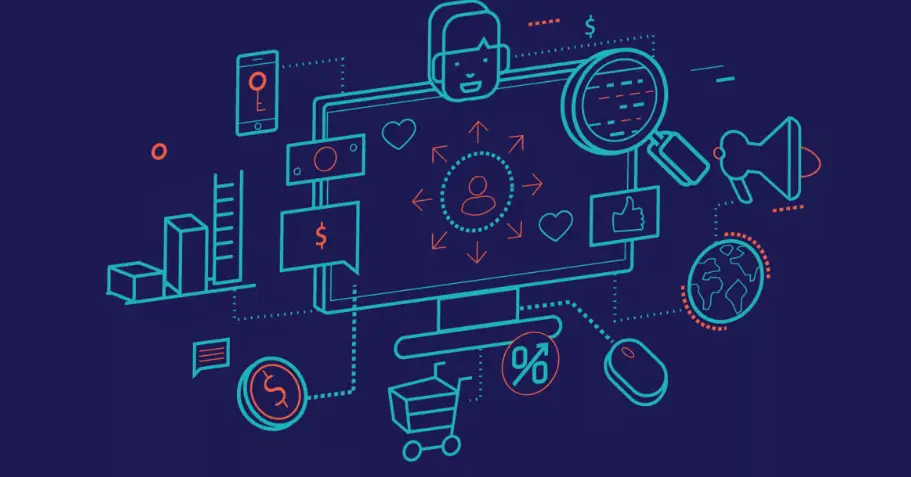In today’s digital landscape, where data privacy, transparency, and consumer trust are critical, blockchain technology is emerging as a transformative force in marketing. Originally developed as the foundation for cryptocurrencies like Bitcoin, blockchain is now being adopted to address some of the most pressing challenges in digital marketing. From combating ad fraud to enabling transparent transactions, blockchain is reshaping how brands interact with their audiences. This article explores the role of blockchain in marketing, its benefits, and its potential to revolutionize the industry.
Contents
What is Blockchain?
Blockchain is a decentralized, distributed ledger technology that records transactions across a network of computers. Each transaction is stored in a “block,” which is linked to the previous one, forming a “chain.” This structure ensures that data is secure, transparent, and immutable—meaning it cannot be altered or tampered with once recorded. Key features of blockchain include:
- Decentralization: No single entity controls the data.
- Transparency: All transactions are visible to authorized participants.
- Security: Data is encrypted and tamper-proof.
How Blockchain is Transforming Marketing
Blockchain technology is addressing some of the biggest pain points in marketing, offering solutions that enhance transparency, efficiency, and trust. Here’s how:
1. Combating Ad Fraud
- The Problem: Ad fraud is a multi-billion-dollar issue, with fake clicks, impressions, and bot traffic draining marketing budgets.
- The Solution: Blockchain provides a transparent and verifiable record of ad impressions and clicks. By tracking every interaction on the blockchain, marketers can ensure that ads are viewed by real users, not bots.
- Example: Companies like AdChain and MetaX are using blockchain to create fraud-resistant digital advertising ecosystems.
2. Enhancing Transparency in Advertising
- The Problem: The digital advertising supply chain is often opaque, with middlemen taking a significant cut of ad spend.
- The Solution: Blockchain enables end-to-end transparency by recording every transaction in the ad delivery process. Advertisers can see exactly where their money is going, ensuring fair compensation for publishers and reducing inefficiencies.
- Example: Brave Browser uses blockchain to create a transparent ad platform where users are rewarded for viewing ads, and advertisers can track their spending.
3. Improving Data Privacy and Security
- The Problem: Consumers are increasingly concerned about how their data is collected, stored, and used.
- Solution: Blockchain allows users to control their data through decentralized identity systems. Consumers can choose what information to share with brands, and all transactions are securely recorded on the blockchain.
- Example: Civic is a blockchain-based identity verification platform that empowers users to manage their personal data securely.
4. Enabling Tokenized Loyalty Programs
- The Problem: Traditional loyalty programs often suffer from low engagement and poor redemption rates.
- Solution: Blockchain enables the creation of tokenized loyalty programs, where customers earn cryptocurrency or digital tokens for their engagement. These tokens can be traded, redeemed, or even converted into other currencies.
- Example: Loyyal is a blockchain-based loyalty platform that allows brands to create interoperable reward programs.
5. Streamlining Influencer Marketing
- The Problem: Influencer marketing often lacks transparency, with fake followers and inflated engagement metrics.
- Solution: Blockchain can verify influencer authenticity by tracking follower growth and engagement metrics on an immutable ledger. Smart contracts can also automate payments based on pre-agreed performance metrics.
- Example: Platforms like Influencer.io are exploring blockchain to bring transparency to influencer partnerships.
6. Decentralized Marketplaces
- The Problem: Centralized platforms like Google and Facebook dominate digital advertising, often charging high fees and controlling user data.
- Solution: Blockchain enables decentralized marketplaces where advertisers and publishers can interact directly, reducing costs and increasing transparency.
- Example: Basic Attention Token (BAT) powers a decentralized ad ecosystem within the Brave browser, rewarding users for their attention and cutting out intermediaries.
Benefits of Blockchain in Marketing
- Increased Transparency: Every transaction is recorded on a public ledger, reducing fraud and building trust.
- Enhanced Security: Data is encrypted and decentralized, making it nearly impossible to hack.
- Cost Efficiency: By eliminating intermediaries, blockchain reduces transaction costs.
- Improved Consumer Trust: Consumers have more control over their data, fostering trust in brands.
- Better ROI: Fraud prevention and transparent tracking ensure that marketing budgets are spent effectively.
Challenges and Limitations
While blockchain holds immense potential, it’s not without challenges:
- Scalability: Blockchain networks can struggle with high transaction volumes.
- Adoption: Widespread adoption requires significant changes to existing systems and processes.
- Regulation: The regulatory landscape for blockchain is still evolving, creating uncertainty for businesses.
- Complexity: Implementing blockchain solutions requires technical expertise and investment.
The Future of Blockchain in Marketing
As blockchain technology matures, its applications in marketing will continue to expand. Here are some future possibilities:
- AI and Blockchain Integration: Combining AI’s predictive capabilities with blockchain’s transparency could revolutionize personalized marketing.
- Metaverse Marketing: Blockchain will play a key role in the metaverse, enabling secure transactions and ownership of digital assets.
- Consumer Empowerment: Blockchain could give consumers full control over their data, creating a more equitable digital ecosystem.
Conclusion
Blockchain is more than just a buzzword—it’s a transformative technology with the potential to address some of the most significant challenges in marketing. By enhancing transparency, reducing fraud, and empowering consumers, blockchain is paving the way for a more efficient and trustworthy marketing landscape. While challenges remain, early adopters are already reaping the benefits, and the future looks promising for blockchain in marketing.
